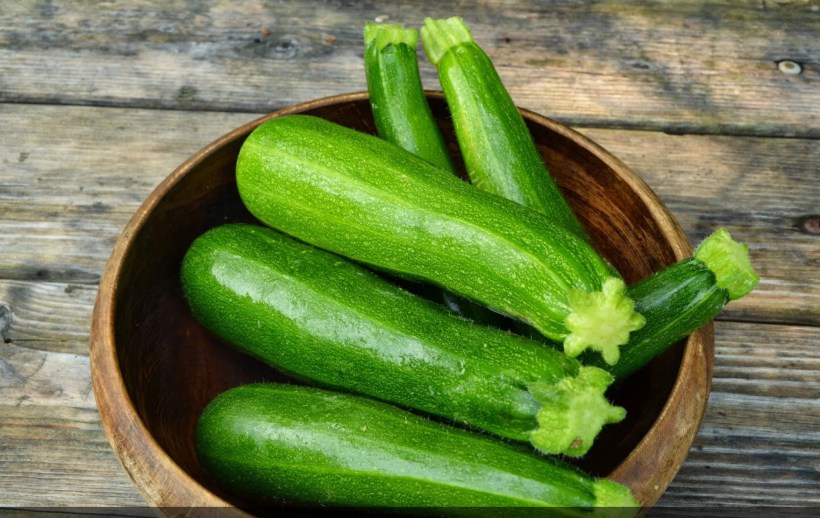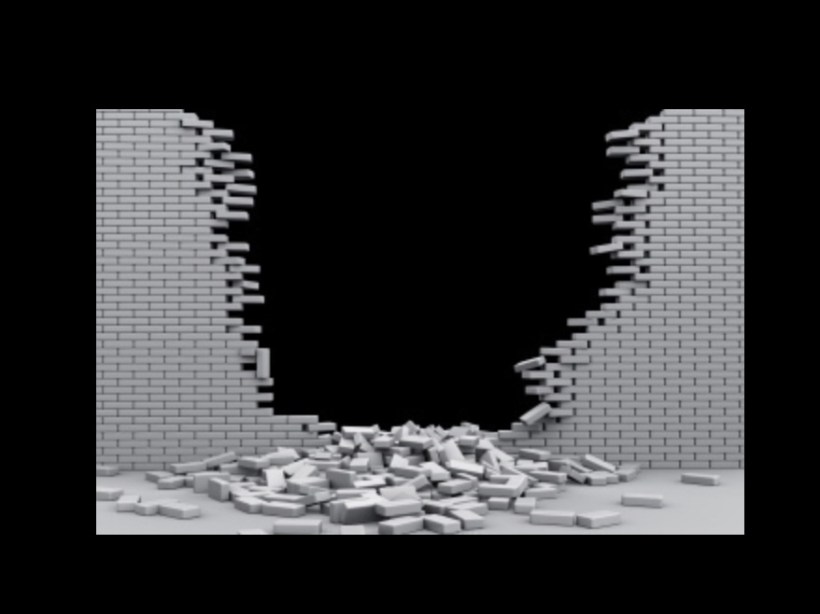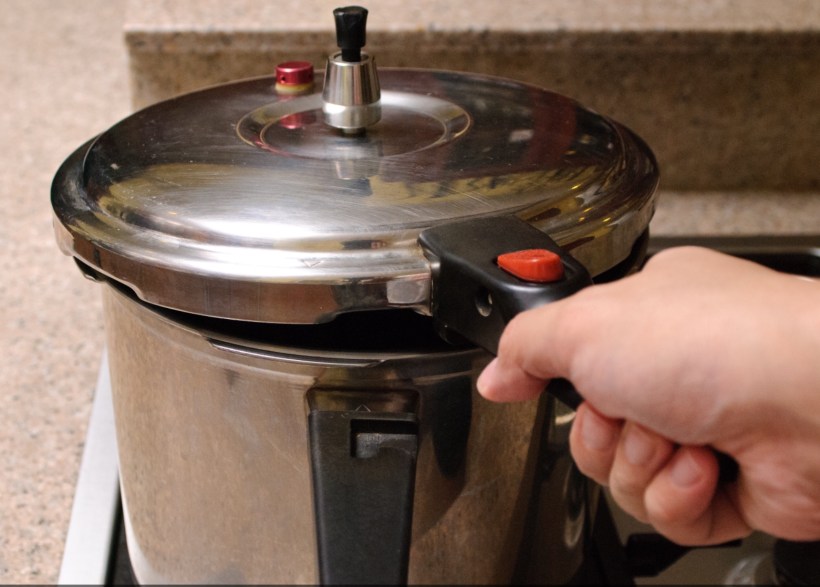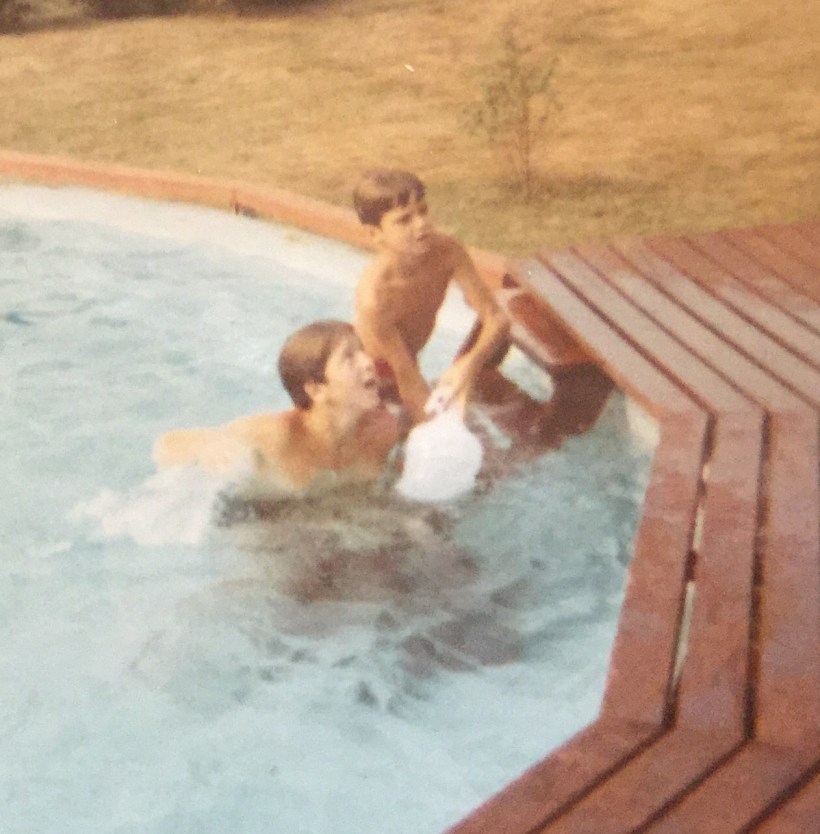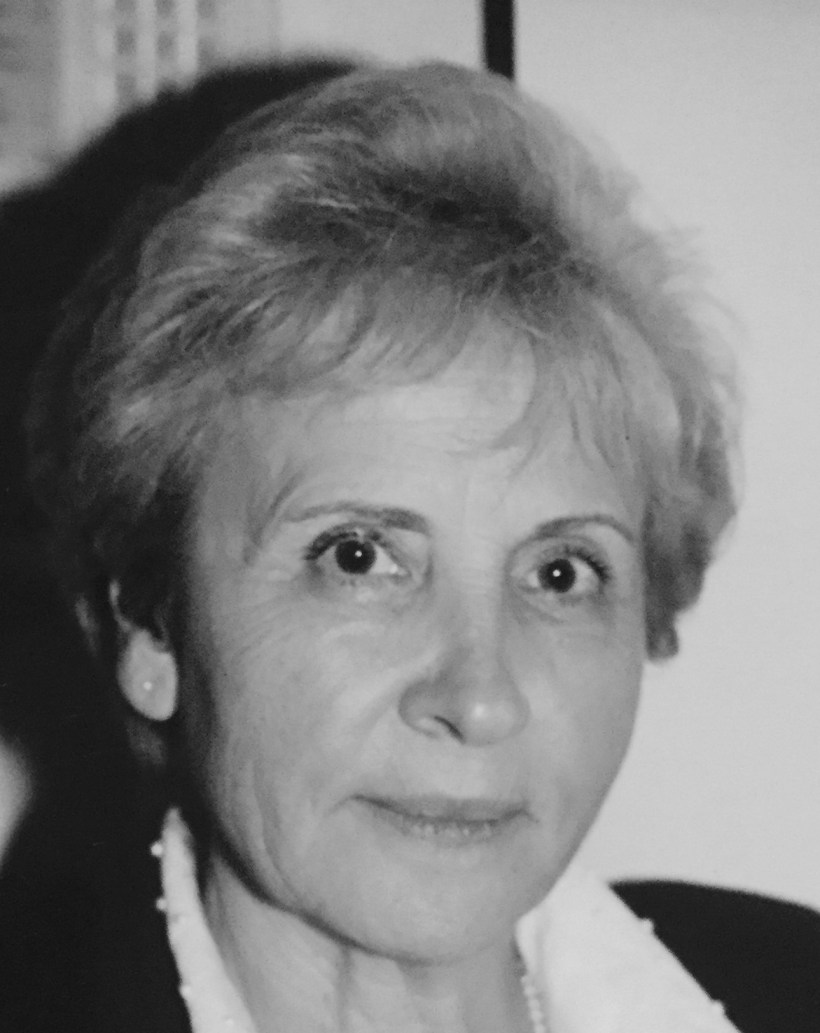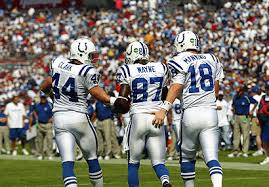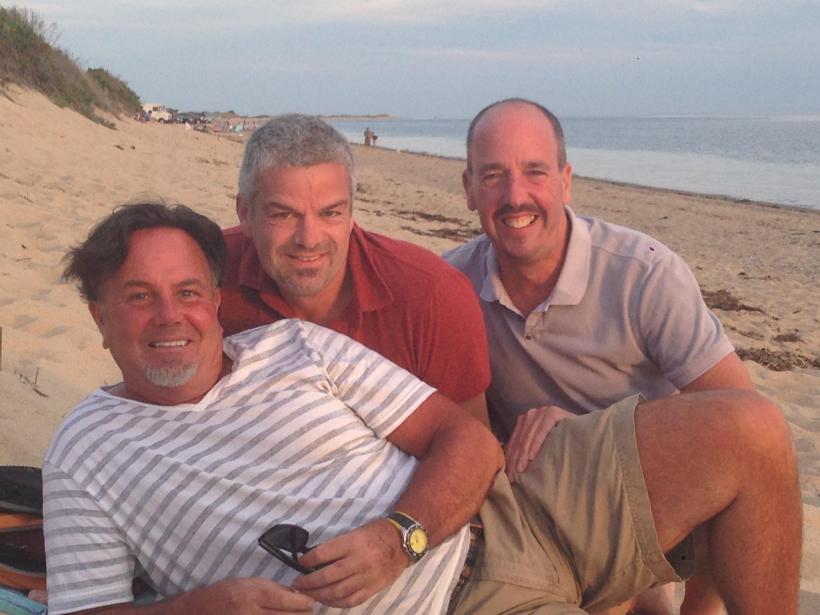Shortly after the book “Mommie Dearest” came out, my mother, legs crossed, sat across from me on our breezeway, her perpetual cup of Lipton tea, with milk, in hand. She was an avid reader but this genre was not typical to her taste.
“What a piece of trash,” she ruled, “It’s so easy for a child to write about their mother after she’s gone. What a way to get even.”
Our mother clung to a core belief, defendable at any cost, that unconditional, unyielding, and unquestioned loyalty belongs to one’s mother. If I’d begun writing during her lifetime it would make sense that she’d be wary. However I hadn’t. As a matter of fact I have no need to “get even” with her. Both of us had always been “even” with one another and it worked.
Some stories are readily told. They are easily written and words flow naturally. There is one perspective and one tale to be told. When writing about a parent the ease recedes much like a tide. A parent is human. There are triumphs and failures and each child remembers and clings to what those may be, shaping their opinion and creating the story of their life with family. Randy’s and Dennis’s relationships might share a common thread of resemblance to mine, yet there would be vast differences. And none would be wrong. As a matter of fact, anyone who knew Edith would have their own version of her. Each would be the remembrance told through memories, good, bad or indifferent. This one is mine. And it did in fact flow easily…until I realized just how complicated she was.
*****************************
She was. She was beautiful. She was complex. She was opinionated though not college educated. She was the “pretty” sister. She was the one who married, bore three children and moved to the suburbs. She was tinged with vanity though the lady would protest it. She was the Empress of her domain. There was no pomp and circumstance to the life she led though she’d longed for it. Her lineage was not traced to Counts and Countesses nor the upper class. She was the daughter of an immigrant father and simplistic mother. She was outwardly strong, though an internal fracture created imperfection, a flaw she would never allow to be seen especially by her enemies, or perceived enemies. She was Eda to her parents and my father, Edith to the world and Edie to close friends. The Argentine had Evita and in our house, the house on Orchard Road, we had, “Edita”.
She loved. She nurtured. She put aside her own desires, if for no other reason than to appear to be the “mother of the year”. But she was, flaws and failures, triumphs and tribulations, the “Mother of the Year” to me. Edith Proto defined her role as a parent by the standards and regulatory statutes she created. “Our country is a Democracy,” she told me early on, “You have rights and freedom and should appreciate it at all costs.” It was my first lesson in civics. “However,” she noted, smirking, “This house is a Dictatorship. You have no rights except those I give you.” It was my first lesson in politics. She squiggled her nose, pinched my cheek, patted my small, unworldly head and went off to fry eggplant in the kitchen. “Mommy loves you little man.”
My mother was a dominatrix. A leather bustier, scantily fitted skirt and fishnet stockings was her attire when cooking dinner and all the while she donned a black, braided leather whip. Of course I jest, she’d never wear a skirt to cook, let alone leather. To her that would be tasteless and more importantly much too warm while frying chicken or eggplant. The only whip was in her words, most often used for protection but at times cutting, even lethal, though she’d protest that statement as well.
“You know Chip, you don’t have to money but you always have to have class. Most people with money have none.” You see, there was a dream. It may not have been ours but it was hers. East of Edith was the life she’d imagined but never quite achieved. When we veered off course she’d draw back her whip, bringing her boys back in line. Yes, my mother was a dominatrix. Still, admittedly, I found love and comfort in her omnipotent actions.
Not only was she the parent who visibly nurtured, she was the disciplinarian, more poignantly the “authoritarian” in the lives of my two brothers and myself. This was a woman who insisted our father play the male role in our lives yet unwittingly kept him in the abstract, the shadow which trailed behind her, and if not behind then to the east of Edith, everyone traveled either behind or east of Edith. Putting her three offspring above all else, including herself, she was accessible, making time to listen, offering advice and on most occasions lending advice without ever being asked for it. Edith ruled her sphere of influence with an iron hand. Still, it was that very hand which would sweep away hurtful tears inflicted on us and soothe bruises when someone was hurting. And God help the person who’d bruised us.
**************************
I remember the first memory of my mother nurturing my creativity. We were in our dining room, her ironing board set up and a pile of my father’s work shirts waiting a finishing touch. Winter had moved to spring and I was in kindergarten. A few days away the Mary L. Tracy Elementary School Easter parade would take place. Each student was delegated the task of making Easter bonnets. Mine was lacking any “joie de vivre”, the fake eggs rolling off the sides and plastic tulips lying limp along the edges.
“Well that will never do,” she said taking charge. “We can’t have you marching and your eggs falling off.” Little did she know, in years to come, having my eggs “fall off” would become a lifestyle rather than an incident. “Here’s what we have to do…”
The pressed, white styrofoam hat did in fact need help. We made our way to Kresge’s, a “five and dime” store at the Connecticut Post mall. She bought bright, colorful ribbon, sparkled eggs and many more false tulips, lifelike lilacs, a fluffy toy duckling and chick. “Now you’ll see.” Her excitement was overwhelming as the creation came together. In my mother’s mind she had crafted the most beautiful bonnet anyone could every want.
“Anyone going to church on a Sunday would love this,” she said, showing off her creation to my dad. Anyone in the south and female that is.
“Ede, you’re not serious…He can’t wear that.” The trepidation in my father’s voice was desperate . “Where’s the styrofoam part and the part resembling a man’s hat?” She found his comments unjustified.
“Henry please, you’ll make him self-conscious.” Apparently neither realized I could hear them although I was in the room. “It’s perfect,” she insisted.
The next day I went to school. In my bag, wrapped as if from Saks Fifth Avenue, was what essentially may be the campiest hat any drag queen would be proud to sport on “Ru Paul’s Drag Race”.
“I’ll see you at the parade little man!”
“Not if I can help it…” I thought, wondering if I should “forget” it on the bus. No, that would only draw more attention. Miss Tracy, the principal, would parade it down the corridor looking for its owner. I had no choice.
I donned the bonnet and ignored the “fem” comments from the kids. As we marched around the floor of the gymnasium, the song “Easter Parade” coming from our juvenile soprano voices, our parents applauded. “Don’t look anyone in the eye” I thought fearing they’d mistake me for the infamous girl with the much too cropped haircut. And then there they were– Henry and Edith, on aisle seats, my mother holding a Kodak Instamatic camera, her smile brimming over. My father pointed at me, loudly whistled and shouted as I passed, “That a boy!” His proclamation was two fold, both to encourage me and to make known my sex. The intention was good, and his attempt valiant, but I’m sure many mistook his enthusiastic remark as, “That’s a boy??”
My mother once asked, “Did I make you gay?” It was a question which preyed on her mind for years. “Nonsense,” I said assuaging her self-indictment, “But you were certainly an accessory to the crime.”
*********************************
“You get five minutes of loving up time, then you go to school” It was not unordinary to hear those words flow from my parents’ bedroom to my brother Randy and me, as matter of fact it was highly ordinary. Dennis, distanced by a decade in age, was far too old to join our mother in her bed, although given the choice she would have insisted. Their room, papered in a whimsical floral print and housing maple Early American furniture, was comfortable.
The bed, a full-size, seemed enormous, fitting four of us at one time for special moments such as this. On her dressing table was a gold, tufted jewelry case, disorganized inside, and a lamp crowned with a frilly shade and in the shape of a pitcher and bowl, like Martha Washington would have had there been electricity during her lifetime. On the corner of the table stood a tall transparent bottle, yellow in color by virtue of the liquid inside with a large, round black top sealing it. Inscribed on the side in black was the name, “Jean Nate” and it was, for as many years as I can remember, the only scent she used.
“Come on, ‘boys et moi’, squeeze in here.” For some reason unknown to anyone, when my mother spoke to us in plural she used both English and French. It was curious because the only French she knew were “French” fries. Randy and I would climb into the bed, he alongside her on the right and me on the left. She’d rub our backs and tell us stories of when she was young or when our grandparents were young. It was timed with precision and when five minutes was up we were on our way.
As our mother grew weaker, day by day, from her cancer, my brother Randy would travel from Florida to visit her. He’d move back into the small bedroom that was Dennis’ then his, a far cry from the luxury of his own home. Still, as an adult, he would sleep in her room on an upholstered chair set in the corner.
“Listen,” he said as if on the witness stand, “She’s so weak that if something happens in the middle of the night I might not hear her.” We all share a common strand of DNA. Worry.
“You don’t have to explain to me, it’s cool. But I did watch a “made for TV movie” once about a son who was in love with his mother.”
“Dickweed…leave me alone,” he said, his voice filled with disdain.
One morning, on my way to work, I dropped by the house on Orchard Road. Shortly after my mother returned home from a hospital stay Randy flew to Connecticut. His arrival gave me a reprieve, allowing me to return to my own home and catch up on life.
“Mom?… Rand?… Hey, where are you guys?” I wandered down the hall and found them both sleeping, at least he was. Randy was curled up on her right, her now frail hand running through his hair. She gave me “the look”, indicating if I were to ridicule or wake him my ass would be on the line. Then her head, now with only wisps of hair left on it, nodded toward her left. I snuck into the bed, curled up next to her and for a moment, a fleeting yet very important moment, life for us was very, very good.
************************************
“The look”. How does one begin to describe “the look”? “The look” was simply what it was. It asked the question, “Do you think I’m an idiot?” It also was the precursor to punishment, the prelude to a symphony of retribution for having either embarrassed or humiliated one, or both, of our parents publicly. It’s inconsequential how many times I found a connection between my mothers’ swiftly moving hand and my ass. Once, twice? There was the time I was thirty-five years old and she slapped me in the salon, in front of witnesses, for disrespecting her with verbal sarcasm. Still, that did not encompass the truthful heart of “the look”…that was an exercise in authority and respect as she put it.
After a weekend away in Provincetown, I arrived home and was staring in the mirror. My friends had convinced me, in the moment induced by alcohol, to pierce my ear. In those days there was the distinction between left piercing (straight) and right (gay). Cautiously, and untruthfully, I pierced the left.
“How was your trip, Chip?” I wondered how long it would be before she noticed. “Did you guys do anything fun?” We did but nothing she need know about.
“Good, lots of fun…the ride home is killer though.”
“Well, it’s a long waaa…” She’d stopped in the middle. Like the hunter she focused on her prey. Oh God, here it comes. “What in the hell have you done?” Her tiny feet and body slowly moved, predatory toward me. My body shifted to defense mode. This could go only one of two ways. She asked again, “What have you done?”
“Well,” submissively said, “I pierced my ear.” My mother was “alpha-dogging” me.
“I see…and are you a boy or a girl? Because I gave birth to a boy. A beautiful boy, with perfect ears. How could you ruin your ears that way?” She began to speed up. Was she actually beginning to close in? Her feet sped up and I moved rapidly out to and around the dining room table. It was lunacy as my mother, I believe seriously, was trying to catch me and return my ears to normal before the damage was permanent. Luckily, I grabbed my car keys and left before she had the chance. My father, ever in the background just shook his head. I was twenty six years old. She didn’t care. To my mother I was the property she labored to own…and was reminded of that every day.
For the first twelve years of my life my father and I would get our haircut by “John the Barber”. John Longo was an old family friend and we were expected to behave respectfully and well behaved. Anything less was punishable by death and death was welcome..
Shortly after the movie “Mary Poppins” was released, I found the utensil of my dreams. General Mills was cashing in on the Walt Disney fervor. With fifty cents, and five box tops of any of their cereals, an official “Mary Poppins” spoon was yours. Upon opening the final box of Frosted Flakes, I cut off the cardboard top, dipped into my sock filled with coin and sent off my order. Minutes turned to hours, hours to days and days to weeks. Then, before the following month, my dream came to fulfillment.
I waited, practically salivating, each day moment the mail arrived. I saw the box leave the mail truck in the hands of Mr. Serfilipi the mailman. And there, at our kitchen table I tore open the package and stared at the silver, or stainless, spoon. It was a teaspoon with Mary Poppins, umbrella open, attached at the end. For a little boy, at least this one, it was the stuff that dreams are made of.
“Come on Chip,” my mother called, “You have to get a haircut.” Apparently my mood was less enthusiastic this summer day for my friends were all meeting to play—this haircut was interfering in my social life.
“I don’t want to. I want to play with Mike and Mark.” My voice bore the single characteristic that set my mother’s teeth on edge, whining. Edita had little to no tolerance for whining.
“Well here’s a news flash kiddo…you’re getting a haircut.” I hated when she held the leash. In my young mind was a plan. She’d have no choice but to have John stop, or hurry, to complete his work if I acted miserably and the neighborhood kids would welcome me readily. We plan and God laughs.
At the barber shop I was the child who, over the course of my career, I have grown to dislike. I sat, teeth clenched and pouting, not acknowledging any adult as my mother coaxed me into saying “hello”. In the barber chair my body squirmed and twisted. My hand pushed at my hair and I ripped the “Sanek strip” from my neck. Looking over my shoulder I watched as my mother, calm and collected, read a magazine. She wasn’t distracted by my insolence. Had my plan backfired? Was she immune to the tricks of her sons? Then, to any other eye, I saw “the look”. To any other eye it would go unnoticed. Once completed, my hair was slicked down with pomade and the bill was paid. Our car, parked directly in front awaited us. The ride home was eerily uneventful. I positioned myself in the backseat, on the floor behind the passenger sea where her hand couldn’t reach me. In those days seat belts were rarely used and the idea of car seats hadn’t been born.
“Are you itchy,” she asked.
“Nope.” I tersely replied.
“Well that’s good. I wouldn’t want you to be itchy.”
What was happening? Had something shifted in the dictates of our mother? Had Edita softened to the point of being unrecognizable? It was a question that had no answer. We arrived home and exited the car.
“You go play… I have to get dinner ready…Oh, and Chip,” she said as her hand moved toward me, “Brush yourself off…there’s hair on your shirt.” Something was off.
By this time the others had gone home and I was left to my own devices. My body scurried up the small Weeping Willow on our front lawn. I heard the screen door open and my mother walked toward me. “Are you having fun? Come down for second, I need to show you something.”
My body descended, limb by limb, until my small feet stepped onto the grass simultaneously. From behind, in her right hand was a spoon, my Mary Poppins spoon. I looked puzzled. She held it out in front of her.
“Do you know how badly you behaved today?” Shit, this wasn’t over, clearly it was just beginning. She was a sniper. “Well, do you?” I had to answer.
“I know. I didn’t want my haircut. I told you that.” I chose defiance. I chose wrong. Shit.
The next thirty seconds seemed to last a lifetime. The camera had slowed the motion to almost stop as the audience, me, watched in horror. Her hands took the spoon, one on one end, one on the other. Slowly the words left her mouth as she, with superhuman strength, bent the little spoon in half. “This… this little man is the consequence of that.”
I passed out, at least I think I did. I heard myself scream “Nooo!!!” as the ghastly murder unfolded. I’m sure I passed out. The murderess let go as the now bent piece of metal dropped to the ground. Scooping it up, I pressed it to my chest. I looked at her. She was stone cold.
“The next time think before you act.” My eyes wept. My heart broke. My stomach remembered all of the cereal I’d eaten.
My father bent the spoon back into some form of its original shape and I ate, using it every day as a reminder to my mother of her injustice. Six weeks passed, after the unmentionable incident and my hair had grown. It was time to pay John another visit. My mother, like a parole officer, watched my every move. Like a stone statue, or sculpture by Michelangelo, I sat through the entire haircut. There would be nothing left to chance this time. She paid the bill and drove me home.
“You go play,” she said and it was all too reminiscent of a bad dream.
At dinner my family sat around the table. My mother, as usual, served us and when she put down my plate she lay a box alongside. Through the clear portion, in all its glory, was a new Mary Poppins spoon. There is a saying parent’s use frequently, “This is going to hurt me more than you.” Years later my mother, in one of our many conversations, admitted she hated every minute of what she’d done. It was a choice, like mine to misbehave, that was spontaneous and not well thought out. I never held it against her nor judged her for it. I learned to respect others, especially at their workplace. My mother told me she’d learned valuable lessons as well. She learned five boxes of Frosted Flakes is a hell of a lot of cereal to eat and bending a spoon can destroy a good manicure.
***************************************
There’d been four siblings in her early childhood but now she was left with one sister, Gloria. At best they had a strained relationship, not always at the hand nor words of my mother. When my Aunt decided to marry she was much older, in her forties. “There were a few men she could have had,” my mother told me, “Why she settled for this one is beyond me.” Lou was uneducated, had one divorce behind him and a child he never saw. We knew little about how, when or why, but something led my mother to believe this a pact with the devil and time would prove her instinct right. “It just doesn’t add up.”
Shortly after their marriage, while at my grandparent’s house, I was a peripheral spectator to an argument between my aunt and her husband.
“Lou, be quiet, the kid will hear us and he’ll tell Eda.” Gloria was trying to quell the escalating volatility.
“I don’t give a shit if the kid hears me. And as far as your sister, fuck her.” His voice was unfamiliar to me and I recoiled, looking away pretending it never happened.
“How was you stay?” my mother asked. “Fine.” I couldn’t bring myself to tell the story… until….
The ring of the phone was seemingly urgent. My mother replaced the receiver, took hold of her car keys and handbag and called to me, “Chip, come on, we have to go to Aunt Gloria’s.”
Now sixteen I was less protected from reality. On the other side of the door on the tiny ranch style house my uncle sat on one end of the sofa, his legs spread and his hands dangling between. Periodically he’d tug at his fingers. In the tiny, pale yellow kitchen my aunt sat, her hands holding her head, crying.
“Go sit with Lou, I need to sort this out,” my mother said.
I had nothing to say to him. He was frazzled, almost as though he’d run a marathon and was coming off an adrenaline high, hitting bottom, in the world of athletics I believe it’s called “bonking”. In the kitchen my aunt held an ice pack against her cheek. From her eyebrow to her lip she was swollen. He’d beaten her. My stomach turned.
“Edie, you know how she gets…She just…” Did he believe he’d have an ally in my mother?
“Gloria go pack some things, I’m getting you out of here.”
Aunt Gloria packed a small tote, a pair of pajamas, some toiletries, underwear, a shirt and pants. As we left the house my mother stood face to face and eye to eye with her brother in law. “You touch her one more time and they’ll never find your body you son of a bitch.”
It was the first of many such incidents and my mother, of course, never committed murder. My aunt refused to leave both him and the situation. We would, instead, periodically collect Gloria, bring her to safety, which would last one or two days, and loan her money. After, she’d say, “All is fine. He apologized.” I couldn’t help but ponder my mother’s position.
“Mom, what if Dad did that to you,’ I asked, “What if he hit you? What would you do?” Driving, she looked straight ahead toward the horizon, as if asked what kind of music she preferred. It took less than five seconds for her response.
“You’d be doing two things kiddo–visiting me in prison and him in the cemetery. He wouldn’t live to see the next day.” I had a definitive answer to my question.
**************************************
Preparing me for marriage was an all-encompassing task. On the off chance that was not in the cards my mother wanted to know I could be self-sufficient. Driving, she watched the road as she spoke. “I want you to be independent. In case you don’t get married, or it doesn’t work out, you should be able to care for yourself.” I looked across the car at her. I was after all only twelve.
“Thanks for the vote of confidence. What makes you think I won’t get married?” I was not in touch with my homosexuality yet.
“I’m not saying you won’t, I just want you to be able to take care of yourself when I’m gone. Listen, your father is a great guy but look at him. He can’t do anything for himself. That’s because he didn’t have a mother. People walk all over him and he lets them. I just don’t want that to happen to you and your brothers.” I couldn’t help wonder if she in fact left tread marks on our father herself.
“I want you boys to always marry the right girl.” It was a pity we did not live in India or some far off foreign country where arranged marriages are completely accepted.
“I’ve decided Randy should marry Caroline Kennedy. What do you think Chip?”
“Are you kidding?” Puzzled is the only word that came to mind.
“Don’t you think Randy should at least try to meet Caroline? I saw her today on the news, she’s so pretty.” Those words, while washing the dinner plates, were spoken as if the Kennedys were long time family friends. I surmised Jackie did not wash her own dishware and how exactly would their conversation go?
“Jackie, did you know Macy’s is having a one day sale? You can get an extra 20% off with this coupon. Here, you take it.” Or “How about we go ‘divs’ on a hot dog and fries at Glenwood?”
“Mom, they’re rich. How would he ever get to meet her? Plus he’s only fifteen.”
“Listen kiddo, it’s just as easy to fall for someone rich as it to fall for someone poor, so go for the rich one.” Apparently she was speaking from experience. I simply raised my eyes and sighed, shaking my head in disbelief.
Independence. That’s what she wanted for us. Independence. What was the definition according to Edita? To go where we chose, buy what we like and make our own decision, provided she approved of or at least consulted in the decision. Independence. This was a difficult task and if heartfelt wouldn’t she have cut the umbilical cord before I turned forty?
New Haven was less than happening but we did have two gay bars that serviced a need. In the 1980s and 1990s I was seeking my independence and adjusting to the fact I was gay. I hadn’t come out yet and to my mother I was still a catch for some young woman with whom I could settle down. We would have 2 children and visit my parents’ home every Sunday and at least twice more during the week- a reading from the Gospel according to Edith. As we know, that was not the trajectory. Still, a mother can dream.
One night, I met a very handsome and slightly younger man. While the music played we sat making small talk and eventually took the conversation outside. Walking, we made our way up and down the streets of New Haven knowing the night would end in a hotel room. I was living at home, as was he, and I’d never been one to have sex in the backseat of a car. Besides, my mother would think it unsanitary. On Chapel Street we checked into the Colony Inn, a mediocre space but it was just for the night or perhaps a few hours.
In the elevator we began the process. Hand to hand, body to body and mouth to mouth. The ride to the third floor seemed endless as my heart raced as if running to catch a train. At twenty four my hormones worked overtime and the fire was hard to put out. The room was less than I’d imagined. For a moment I thought the back seat of the car was indeed more sanitary but this had to happen and soon. As we kissed he began to undress. I noticed the phone on the nightstand and went to it. Picking up the receiver I began to dial.
“What are you doing,” he asked, “Calling room service?” I had to think for a moment, room service hadn’t entered my mind. On the other end someone said, “Hello?”
“Hey mom, it’s me. Listen, I had a little too much to drink so I’m not coming home…No, no, dad doesn’t have to get me…I rented a room and I’ll see you in the morning…ok? Sure, waffles will be fine.” He stared at me.
What the hell was that?”
“Uh, well, uh, it was my mother…I live home so you see…she, um, she would have been worried, waiting up and if I never got home…” I didn’t have to go any farther. I had “Italian Mama’s boy” written all over my face. A little bit of the fire went out…along with it so too did the word “independence.”
***************************************
It didn’t have to happen but like so many others it did. She was negligent. She put duty ahead of herself, caring for our father, and in the end it crept in and did its dirty deed. Cancer. Kidney. Metastatic. In the earliest moments of diagnosis we spied a thin ray of hope. “I’m a fighter. The doctor said they may have gotten it,” she said with conviction and for several months she felt “almost” normal. The scan told a different tale.
“It’s metastasizing rapidly,” the oncologist said, “She needs to be told.” In the end she wasn’t tough enough to fight this. The lesions in her spine and brain were winning, using the tactical ploy of “divide and conquer”.
We gathered at the house on Orchard Road, Randy, Dennis, Maria, Marsha and Robert B, to deliver the news of the advancement. This would be the time she needed us most, the time we could repay those years of strength when nothing else mattered but her sons. My brothers and I went into her room and sat, each one taking position on her bed. “Mom, we need to talk.” I suppose, like anyone might, I filed this moment far away. The three of us talked, she in her soft yellow cotton lounge wear and flowered top and we, holding back tears, except mine were uncontrolled. I wept.
“Don’t cry,” she said, then turning to my brothers asked, “Who’s going to take care of the little guy? Who?” I was thirty-nine.
After, the three of us went to the living room as our mother lagged behind, perhaps to shed an unseen tear or simply to brush her hair.
“I’m going to be okay… I don’t want you all to worry about me.” In this moment, when her children, during the worst possible situation of her life, tried to support her, she overrode the effort. It was always, and would always be, her job to protect us, even at her own emotional cost.
“Mom, you have to stop driving.” There, on the table, were the words she dreaded more than her diagnosis. In her eyes was a defeated look, a rarity and seldom seen on the face of Edith Proto.
“Get me a pen and paper” I was unsure why. A suicide note perhaps? No, she would never leave us by choice—in her mind we’d never survive. “I’m giving you my car. If I can’t use it you can. Your lease is coming up and this way you’ll have time to shop without rushing.” How typical of her. “And get my jewelry…while I’m writing I may as well write it all.” Alas, Edita to the end.
Oddly enough, after all we’d been through, it was our final conversation that was the most poignant. After learning her cancer had spread and the hope of remission was no longer possible, I sat alone in my room while my mother, my friend, slept soundly in her bed. Time was becoming more precious, she only had a matter of days left to live.
As I stared beyond the opening of my door, which was opposite her bedroom, I took note of the woman sleeping peacefully in her bed. My mind recalled the troubled times we’d been through together as well as the support and love we’d shared as mother and son. I took hold of my pen and began to write a letter of thanks. The next day, as I sat on her bed, we engaged in a very private conversation. I handed over my note.
“What have you got there, little man?” her voice was clearly one of an exhausted soul.
“I wrote something for you to read tonight before you fall asleep.” I handed the envelope to her.
“No, read it to me now,” her wispy, breathy voice ordered. Her fragile, boney hand turned the letter over to its author.
“I’m afraid I’ll cry,” I said, the words barely audible.
“Don’t be a sap kiddo, go on, I’ve taught you to be strong haven’t I?”
Opening the envelope I removed the pale grey notepaper, “Dear Mom, how does a son begin to thank a mother…” I read my script in its entirety and she sat, listening carefully to every word. I spoke of my admiration for her, of the sacrifices both she and my father made for us, their children. I let her know how even when it hurt, the discipline made us better and when we’d disagreed I always loved her because I knew that she knew better, as statement which made her smile. Then, gazing into the distance, away from her eyes, I trembled, my lips quivering as tears pelted along my cheeks. My voice cracked as I said, “Though we may not have a physical presence between us any longer, nothing can separate the very special bond of love we have.”
After a long, contemplative stare into the void of space she spoke, “I never knew I was loved so much. I didn’t think anyone even liked me.” I was speechless.
“How could you not know?”
“I suppose I just didn’t have enough confidence to feel it. I’ve never had much confidence. I just wanted you boys to be stronger.” My brain literally ached from those words.
“You have beautiful big brown eyes.” “Hello handsome Dan Magee.” “You were the most beautiful baby.” “You have a beautiful body.” I’d heard those and numerous other compliments throughout my life but tapped into low self-esteem on a subconscious level. I must have heard the unspoken early on from my mother, it wasn’t about my father at all. Through all the words she’d spoken, with all the bravado in an attempt to give me confidence, it was that which she’d kept hushed which taught me to be whom I am. But there was so much more.
******************************
Strength. So over used and so underappreciated. It wasn’t until I began writing that I realized the extent of my mother’s complexity. Suddenly I was befuddled. The woman I knew was loving. Without question there was enough love to last a lifetime. I found, through the words, my greatest attraction to my mother was her strength. Her story began humbly and ended better. Awe drew me to her capability and tenacity, fear had no place in her public life, and if it did she never showed it. But it was there.
As my mother lay in a hospital bed, her brain recovering from a grand mal seizure, the result of metastases of her kidney cancer, my telephone rang. On the other end a nurse, her voice soft and monotone, delivered the news my father had died during the night. As difficult as it was to hear the words, it would be all the more difficult to deliver this to our mother. I called my brothers and they rushed to the hospital. The woman who’d raised us and fastidiously cared for her husband would now need our strength.
When Dennis and Randy arrived she already knew. None of us could foresee her calling me at work and having the new receptionist inform her I was taking the day off because my father had just died. She was alone in her room, tubes attached, trying to comprehend what she’d heard. For the first time in my life Edita looked beaten. Her body was frail, her hair undone and frizzy from the aftermath of her seizure, and her soul seemed to be taken from her. Silly me. I should have known better. When the smoke cleared a day later she dictated.
“Chip, I need you do me a favor.” What could she possibly need? “I need you to go to Filenes. Buy me a dress, none of mine will fit me, black of course. Then get me a new pair of shoes and a scarf, pretty, to hide these things in my neck.” Was she insane? She was planning to attend his funeral. “And call the doctor. I need to talk to him.”
With determination she told the doctor he needed to “undo” her intravenous and remove the meds going into her. “I need to bury my husband. He just died. How long can I go without it?” The doctor empathetically told her about four hours. “Good. We can do that.”
As the coffin entered the church behind it was our family. My mother, in a wheel chair, looked fabulous. She positioned herself next to the coffin and at precisely the right moment touch the polished wood lightly, caressing her husband as she caressed our heads when we were young.
Post funeral we returned to Orchard Road. My mother made her way to her bedroom and held court for mourners who’d come to their respects. Her allotted time away from Dilantin, her anti-seizure medication, was drawing near.
“Ok boys, get me back so I can get better.” With minimal assistance, she rose, assisted by a walker, and shuffled to the car. After returning to her hospital bed I couldn’t help but be mindful of the day. My mother, with strength and personal expectation, showed the world, her world, she was more than Edita– she was, on her own terms, Jackie Kennedy, the woman she’d longed to be.
***************************************
Oddly enough it was my turn to stare into space. For all the conversations and verbiage about being independent and strong it was the one conversation never spoken which was the most powerful. Throughout my life I’d suffered the curse of low self-esteem. I too thought people really didn’t like me. My mentor had apparently taught me well, subliminally, though not as she’d intended. Two weeks later the sun was setting in the November sky. We sat at her bedside, her beloved boys, as each breath became shallower.
Hospice was soothing yet she was only aware for the first days of her admittance. The room was large, housing multiple beds and many family members. It seemed we all were sailing the same vessel, the Titanic, knowing we’d be losing someone we loved. The sun set through the large paned window and the music echoed softly from the strings of the volunteer’s guitar. With every breath we waited, the intervals empty and then an inhale. We’d exhale. I don’t know why. Did we think that breath would be her saving grace? That we were grateful was foolishness, the end was obviously at hand.
As the sun was setting the colors warmed the room. The vibrant golden tones turned crimson over the barren trees. November can be a month of conundrums. The beauty and warmth of the sky, juxtaposed against the dismal grey of the sleeping tree limbs, mirrored the emotion of watching a loved one exit this world. Her breathing, now negligible, caused my own to slow. Looking into my mother’s eyes, the eyes that kept watch over her children, husband and world, I saw distance. A single tear fell along her cheek. Was it happiness that her battle was over or was it sadness the she was leaving the family she loved behind? Leaning in, the Hospice aide whispered, “It’s about to happen” and it did. A single tear fell from my mother’s eye, her lips paled and she was gone.
************************************
She was. She was the greatest and most complex woman I knew. I focus on her strengths and solid ability to rule because that, in fact, is what attracted me most. I have only a fraction of her trait in me. I am more my father’s son. She was. She was generous, and her generosity knew no bounds. Any one of us could call upon her at any time, for anything, and she would make it happen, no matter how far or how inconvenient. She was. She was love, not always demonstrative but genuine, it was action that spoke the loudest. She was. She was nurturing, wiping our tears and protecting our feelings even to the end. It was her burden to hurt. She was. She was honest and if it hurt it was to strengthen you because strength of heart helped get you through this world. She was. She was flawed and we all knew it. But she gave us the best of herself. She was. She was the woman who gave us life and enriched it. She was. She was, quite simply, my mom. Indeed, she was.
